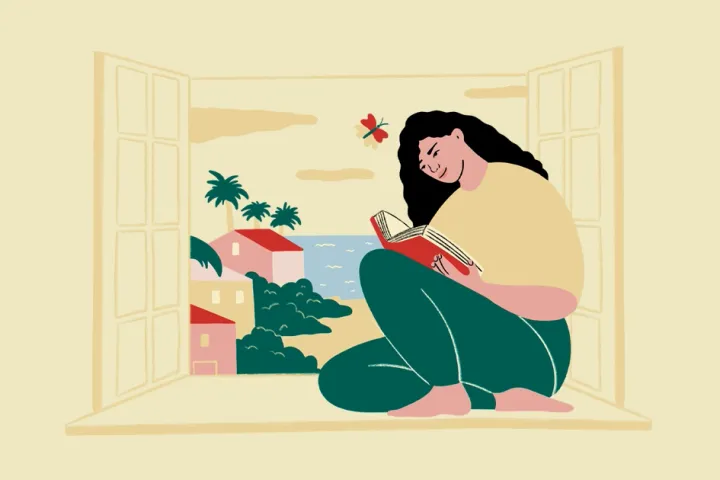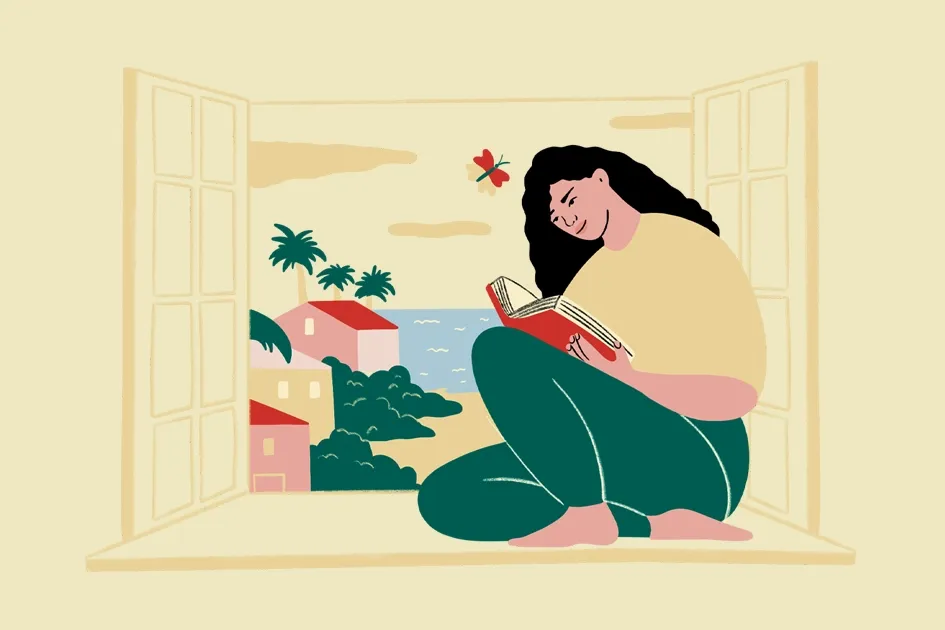Every time we’re together, we talk about health problems now,” someone said during our small group dinner last spring.
“I think we’ve all had a health thing to deal with over the past few months, haven’t we?” the leader responded, going around the circle, rehearsing a litany of colonoscopies, heart catheterizations, and cancer screenings.
“It’s as if we’re getting old or something,” another said, even though most of us are only in our 40s. We all laughed.
We really thought Erik would be healed. At least I did.
Each week we share prayer requests, and the list keeps getting longer and longer as we pray for the maladies of elderly parents, our own chronic illnesses, and our children dealing with broken bones, digestive issues, mental illness, and on and on. I dutifully jot down the requests in my journal, and as I go about my week, I pray—but not in the same way I used to.
A few years ago, my best friend’s husband was diagnosed with brain cancer. While the prognosis was grim, he fought valiantly for more months than he was expected to live. But after Erik’s year-and-a-half battle against the disease, his doctor saw signs of imminent death and admitted him to a hospice center.
That didn’t stop us. A group of us sat in round-the-clock vigil with Erik and his wife Kelly for weeks, following a meticulous schedule so the couple would never be alone. We prayed earnestly, both on our own and together. We asked for the usual comfort and wisdom for this family as they faced unspeakable decisions and pain. But we also prayed for healing—the physical kind. That God would remove all the cancer from Erik. We took James’s exhortation to the church literally: “Is anyone among you sick? Then he must call for the elders of the church and they are to pray over him, anointing him with oil in the name of the Lord; and the prayer offered in faith will restore the one who is sick, and the Lord will raise him up” (James 5:14-15). The elders came. The faithful prayed. And we really thought Erik would be healed. At least I did.
But on the Saturday evening when I got the call that Erik had died, I wondered what good our prayers for healing had done. I raced back to the hospice center to be with Kelly, and while we stood arm in arm waiting for the undertaker, I felt the weight of a disappointment I’d never known before: Had God misunderstood us? Ignored us? Or worse, denied us?

Over the next few days as arrangements were made and services held, I heard others talk about Erik as if he’d been healed. “No more pain,” they’d say. “He’s finally whole again.” But I had seen his body in the room after he died. I had driven Kelly home that night—alone. I had ridden in the limo behind the hearse days later to the graveside. I had seen the casket lowered into the ground. How could that be healing?
To be fair, I knew what they meant by saying Erik had been healed. Having grown up in the church, I’d heard this kind of talk before. I’d sat through my share of funerals, desperate for the final hope only heavenly healing could bring. But in most cases, praying for healing had been a vague kind of request for resolution more than restoration. Either I’d been far removed from the actual illness or injury that brought death, or the people who died had been older, and death seemed like a kind of mercy.
But when it came to Erik, this friend I loved, this husband and father of young boys who was needed here, things were different. I saw death coming, and I’d dead-bolted the door to keep it out. When death tore its way into our lives anyway, I tried to wrestle it to the ground as if my own life depended on it. So I didn’t want to hear about a heavenly healing. Not this time. Not when what I really wanted was a physical healing. In fact, talking about Erik’s death as healing sounded like a cop-out to me. As if we were letting God off the hook for not answering prayers, for not actually keeping the promise found in James’s letter. We’d showed up with faith and oil—literal oil—and God had let us down.
A year and a half later, I was diagnosed with cancer myself, and suddenly I saw death coming for me the way it had come for Erik. I didn’t think I could fight like that again. So I didn’t. Sure I accepted treatment for my cancer. I underwent surgery and months of radiation and chemotherapy. But I never prayed for my own healing. Friends did, and when they told me, I was secretly relieved. The elders of my church did. When they anointed me with oil, I felt real power in their words. But as for me, I didn’t pray that God would take away the cancer or heal me with the chemo. I didn’t pray that way because I wasn’t sure what would happen to my faith if He didn’t.
I felt the weight of a disappointment I’d never known before: Had God misunderstood us? Ignored us? Or worse, denied us?
Over the next months and years, God did heal me. It’s been 11 years since my diagnosis, and I’ve been cancer-free for six years. But that’s not the only healing God provided. Just as is promised in James, God also restored the rest of me—my spirit, my emotions, my thoughts—and God lifted me up, when I didn’t think I could go on, by revealing just how small my view of His healing power really was. This new understanding didn’t happen suddenly or completely; I still struggle with fear, anxiety, and doubt at times. But by bringing me face-to-face with death, God helped me confront this triple threat to my soul.
Take anxiety, for instance. After my cancer diagnosis, looking into the future paralyzed me. I hesitated to take on deadlines or make vacation plans that extended beyond my next checkup because I worried about dying. Eventually, God brought me back to Matthew 6, where over and over Jesus calls us not to worry. “Who of you by being worried can add a single hour to his life?” (Matthew 6:27). And wasn’t that the heart of the matter? Wasn’t the real issue less about canceling plans and more about not being around to experience them? I wanted more time; I wanted assurances for the future. Instead, Jesus said, “Do not worry about tomorrow; for tomorrow will care for itself. Each day has enough trouble of its own” (Matthew 6:34). So I let myself—and God—off the hook about what might happen in the future (including whether I would be physically healed), and I began to accept each day as the gift that it was.

When doubts crept in, they usually centered on God’s sovereignty and love. Was God powerless against death? Had my cancer surprised Him? Was He still with me? Would He heal me? Psalm 139 became my field guide for living and dying: “Your eyes have seen my unformed substance; and in your book were all written the days that were ordained for me, when as yet there was not one of them” (Psalm 139:16) My mantra became, “God knows my last day as well as my first,” and every day in between, for that matter. I found assurance in knowing that cancer, or even death, wouldn’t take God by surprise, but also in remembering God’s love and presence were with me always: “Where can I go from Your Spirit? Or where can I flee from Your presence?” (Psalm 139:7). Remembering God’s love for me by reading and reciting the psalms continues to be the best way I counteract doubt and find true healing.
But fear was the hardest to cope with. Many nights I forced myself to stay awake, fearing I’d die if I went to sleep. I slept on the couch in the living room because I was afraid to die in bed. One week after a particularly difficult round of chemotherapy, I dreamed that I had been poisoned. When I woke up, I felt as if it was true. Chemo had a way of doing that. So I asked for help. Family members offered to stay with me at night, and I accepted. I also finally admitted to others that I was scared. In my fear, I found comfort from Paul’s first letter to the Thessalonians, telling them not to grieve in death as people who have no hope. Instead, he paints a picture of resurrection, of the trumpets and the angels and the Lord Himself. This is our hope even in—especially in—death, Paul says. So how do we remember this when life is hard and death is sad? Paul says we have to remind each other: “Therefore comfort one another with these words” (1 Thessalonians 4:18). What a miracle it is to have others around us to remind us of what’s true about death.

As the Lord dealt with my anxiety, doubt, and fear about death, I began to think differently about healing. If I prayed only for physical healing, I’d be back again and again, asking for more, like Paul crying out to the Lord for the thorn to be removed (2 Corinthians 12:7-10). Even Lazarus, whose physical healing came after death when Jesus called him out of the tomb, eventually died again. In other words, though God sometimes provides physical healing, it’s always temporary. The kind of healing Jesus wants to bring to all of us, the true healing He offers to the world, is permanent—eternal, even.
According to the apostle Paul, the irony of this true healing is that it’s best understood against a backdrop of illness, suffering, and even death. This doesn’t mean we don’t pray for physical healing. Instead, when we pray as James encourages us, we’re reminded that we live in bodies that need healing. Bodies that will need more and more healing, in fact, as they outwardly waste away. But there’s an equal and opposite corollary, Paul says: “Though our outer man is decaying, yet our inner man is being renewed day by day” (2 Corinthians 4:16). You might even say the outward need for healing serves as a sign of the inward healing that is increasingly ours in Christ Jesus. Because Paul also says we are “always carrying about in the body the dying of Jesus, so that the life of Jesus also may be manifested in our body” (2 Corinthians 4:10). The darkness of disease and death makes the light of the gospel that much brighter.
But we can go even one step further: Death is the portal through which we cross to receive our true healing. It’s also why Paul said that for him “to live is Christ and to die is gain” (Philippians 1:21). Ultimately, what I didn’t understand at the hospice center with Erik, I learned in my own battle with cancer: A right view of healing gives us a proper view of death, and a proper view of death gives us a proper view of life. And only when we understand the true nature of life can we have hope—both in this life and the life to come.
Now, when I hear about friends or family members who are ill, I still pray hopefully for physical healing, for relief from pain and suffering. And every few months when I have cancer checkups, I still battle the old anxiety that reminds me death lurks around the corner—for all of us. But I also receive these circumstances as reminders: Death does not have the final say. Jesus does. And when He brings our final healing—our true healing—we’ll find we have the restoration God has promised. And He will raise us up with Him forever.
Photography by Philippe Fragniere





